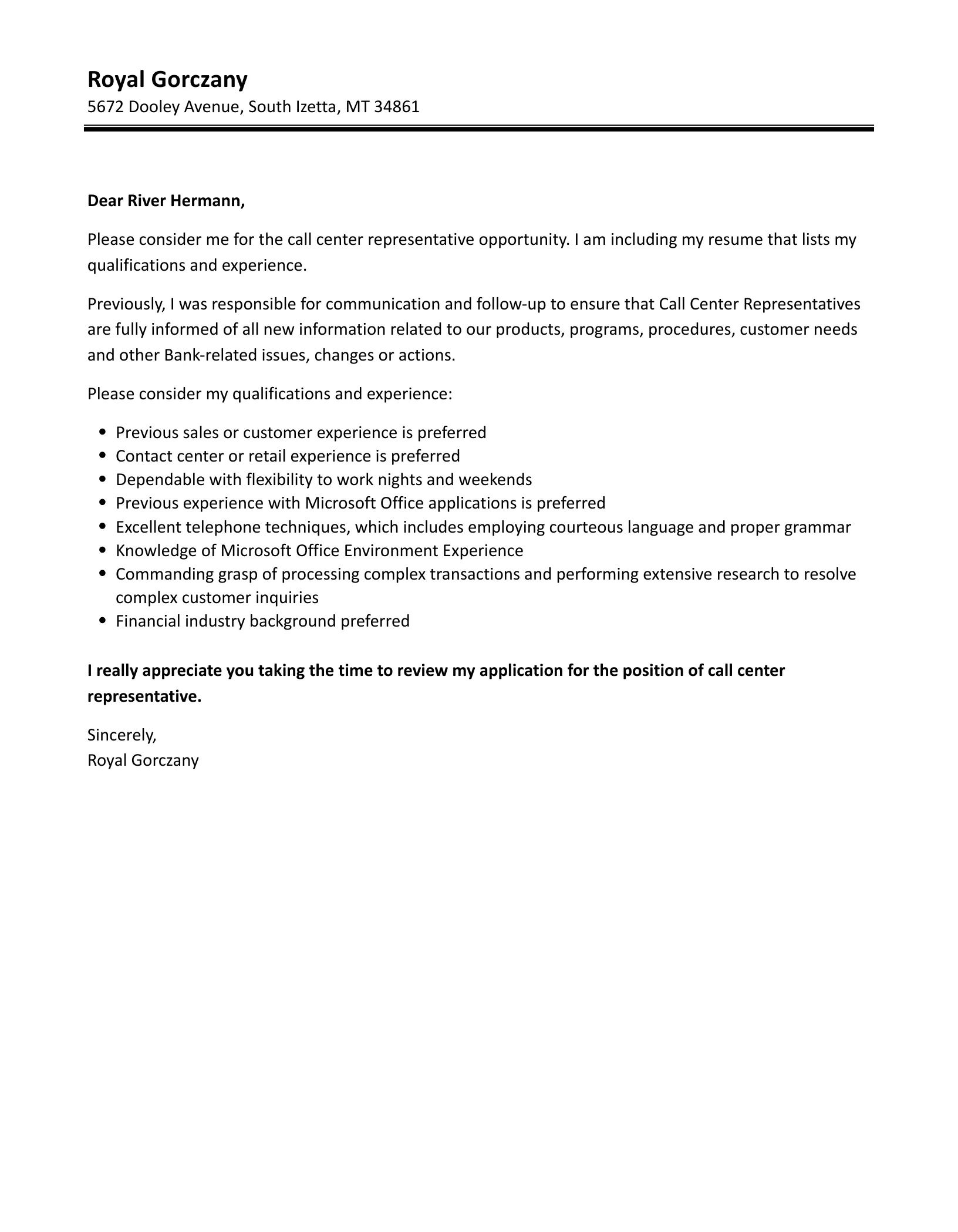Understanding the Importance of a Cover Letter
In the competitive landscape of job applications, a well-crafted cover letter can be the key to unlocking your dream call center representative position. While your resume provides a snapshot of your qualifications, a cover letter offers an opportunity to go beyond the basics and showcase your personality, enthusiasm, and unique value proposition. It’s a chance to connect with the hiring manager on a more personal level and demonstrate why you’re the perfect fit for the role and the company. Many applicants underestimate the impact a good cover letter can have, treating it as a formality rather than a crucial marketing tool. However, a compelling cover letter can significantly increase your chances of getting your application noticed and securing an interview. By taking the time to craft a customized and engaging letter, you can set yourself apart from the competition and make a lasting impression.
Why a Cover Letter is Crucial
A cover letter serves several critical functions in the job application process. First and foremost, it allows you to expand upon the information presented in your resume. You can use the cover letter to elaborate on your skills, experiences, and accomplishments in greater detail, providing context and demonstrating how they align with the specific requirements of the call center representative role. Secondly, a cover letter offers an opportunity to showcase your personality and communication skills. By expressing your enthusiasm for the position and the company, you can create a positive first impression and demonstrate your ability to connect with others. Additionally, a cover letter allows you to tailor your application to the specific needs of the employer. By researching the company and highlighting the skills and experiences that are most relevant to the position, you can demonstrate your understanding of their needs and your commitment to their success.
Highlighting Your Key Skills
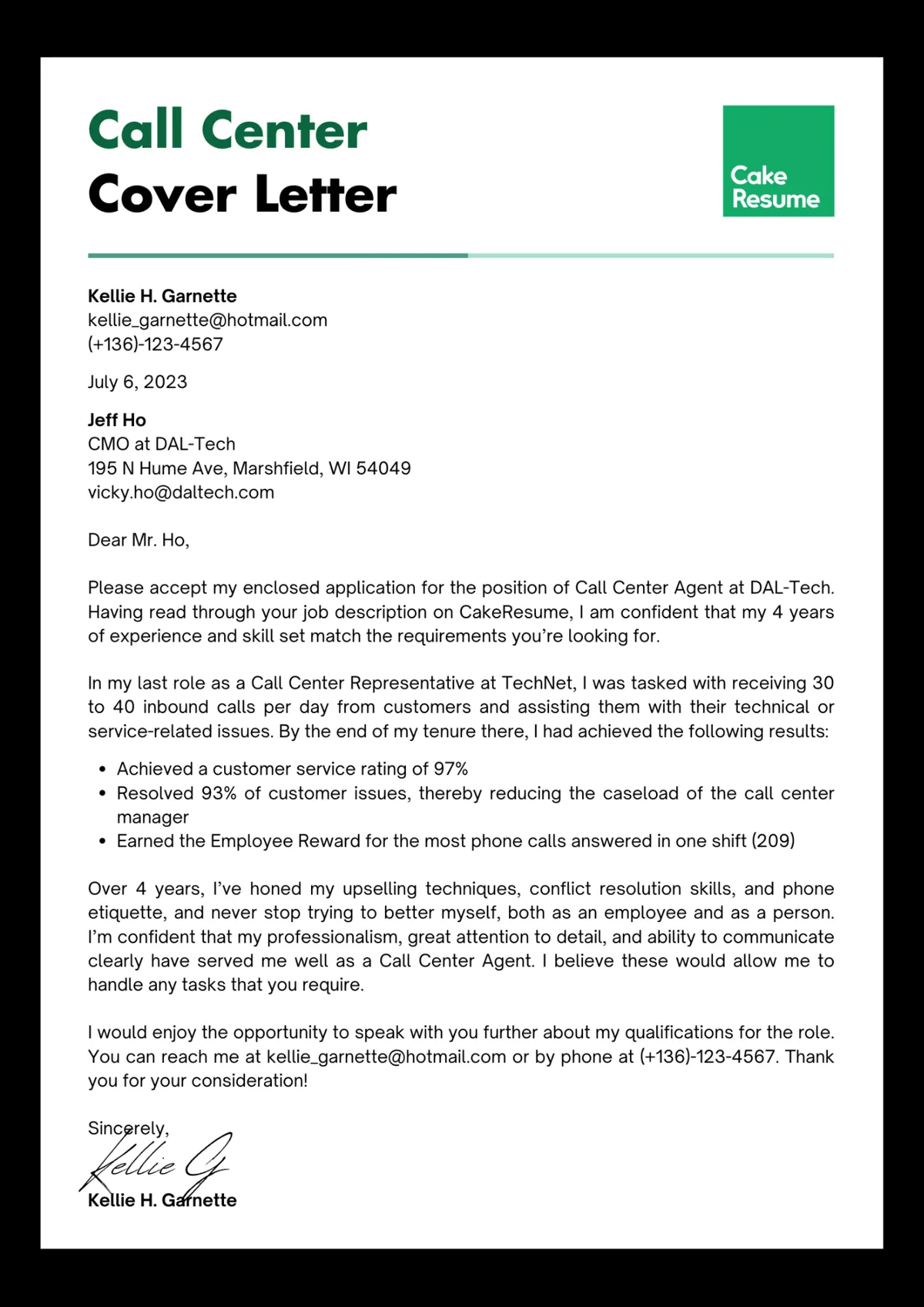
As a call center representative, you’ll need a diverse set of skills to excel in your role. Your cover letter is the ideal place to highlight these skills and demonstrate your suitability for the position. Begin by identifying the key skills that the employer is seeking. Carefully review the job description and note the specific requirements and qualifications. Then, identify the skills you possess that align with those requirements. When describing your skills in your cover letter, be sure to provide specific examples of how you’ve used them in the past. This will help the hiring manager understand your capabilities and how you can contribute to their team. Instead of simply listing skills, provide anecdotes or stories that illustrate your ability to effectively utilize these skills in a real-world setting.
Skills to Showcase in Your Letter
Several key skills are essential for success as a call center representative. These include communication skills, problem-solving abilities, and customer service experience. Highlighting these skills in your cover letter will demonstrate your readiness to handle the responsibilities of the role and provide excellent service to customers. Focus on showcasing your ability to communicate clearly and concisely, actively listen to customers’ needs, and resolve their issues efficiently. Make sure to provide specific examples of your skills and experiences to create a compelling narrative that will capture the hiring manager’s attention.
Communication Skills
Effective communication is the cornerstone of a call center representative’s role. Your cover letter should emphasize your ability to communicate clearly, concisely, and professionally, both verbally and in writing. Showcase your active listening skills by describing how you understand customer concerns and tailor your responses accordingly. Provide examples of how you’ve successfully conveyed complex information in a way that is easy to understand. Highlighting your ability to build rapport with customers and maintain a positive and empathetic tone is also essential. Mention any experience with conflict resolution, de-escalation techniques, or handling difficult customers. By demonstrating your exceptional communication skills, you’ll reassure the hiring manager of your ability to effectively represent the company and provide excellent customer service.
Problem-solving Abilities
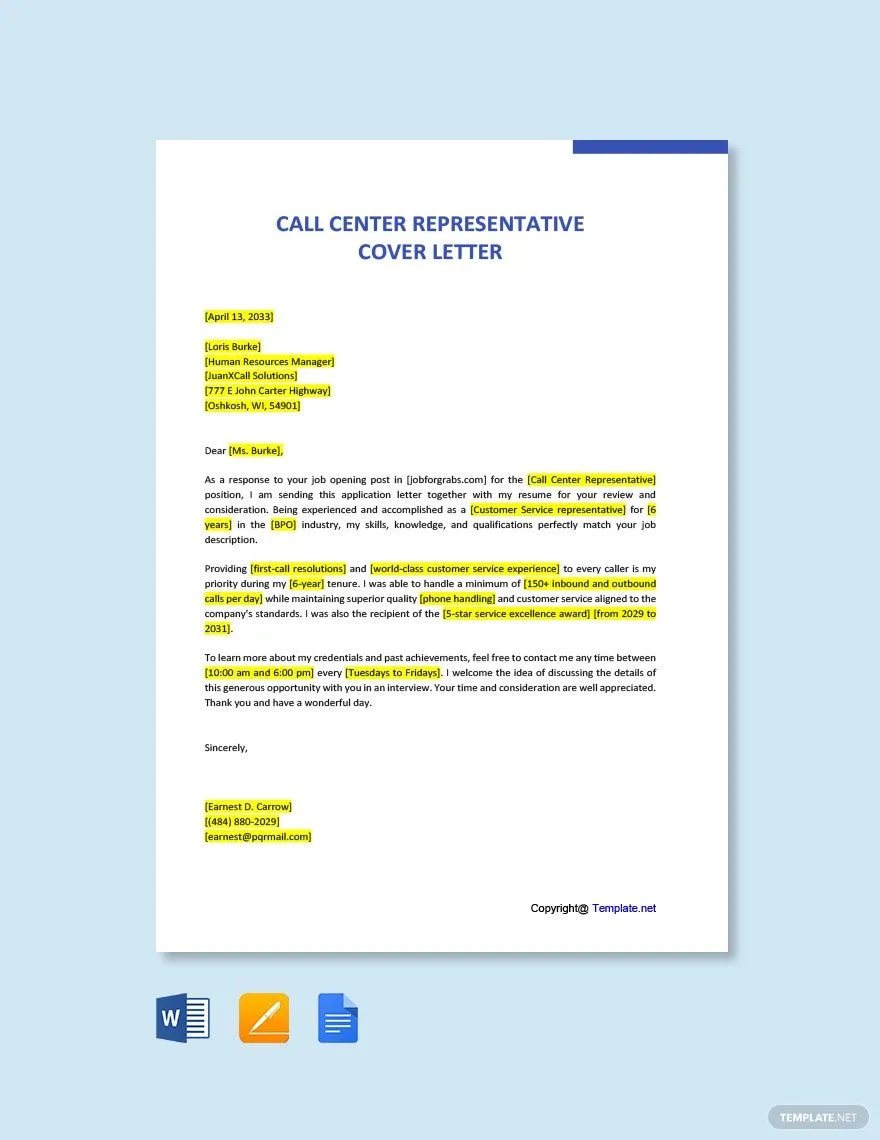
Call center representatives are often tasked with resolving customer issues and finding solutions to their problems. In your cover letter, highlight your problem-solving abilities by describing how you approach challenges and find effective solutions. Provide examples of situations where you’ve identified the root cause of a problem, researched potential solutions, and implemented the best course of action. Showcase your analytical skills by explaining how you assess situations, gather information, and make informed decisions. Mention any experience you have with troubleshooting technical issues, navigating complex systems, or finding creative solutions to customer problems. Your cover letter should reflect your ability to think on your feet, remain calm under pressure, and efficiently resolve customer issues to their satisfaction.
Customer Service Experience
Customer service experience is a critical asset for a call center representative. In your cover letter, emphasize your past experiences in providing excellent customer service. Describe your ability to handle customer inquiries, resolve complaints, and go above and beyond to meet their needs. Highlight any specific achievements, such as consistently exceeding customer satisfaction goals or receiving positive feedback from customers. Mention any training or certifications you’ve received in customer service, such as conflict resolution or customer relationship management (CRM) systems. Emphasize your commitment to providing a positive customer experience and your understanding of the importance of building customer loyalty. Your goal is to convince the hiring manager that you are dedicated to delivering exceptional service and creating positive interactions with every customer you encounter.
Structuring Your Cover Letter
The structure of your cover letter is just as important as its content. A well-organized and easy-to-read cover letter will make a positive impression on the hiring manager and increase your chances of getting an interview. It should be designed to present your qualifications in a clear, concise, and compelling manner. Start with a professional header that includes your contact information, followed by a proper salutation. Then, craft a compelling opening that grabs the reader’s attention and introduces your purpose for writing. The body paragraphs should showcase your skills and experience, with each paragraph focusing on a specific aspect of your qualifications. Make sure to include quantifiable achievements to demonstrate your impact. The closing paragraph should reiterate your interest in the position, express your enthusiasm, and include a clear call to action. By following this structure, you can create a cover letter that effectively conveys your qualifications and leaves a lasting impression.
Formatting for Impact
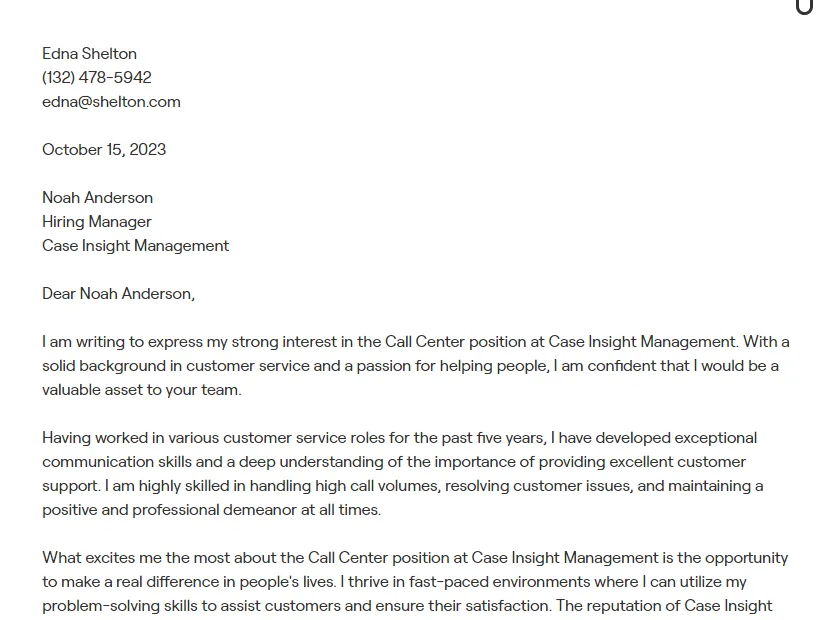
Formatting plays a crucial role in the overall impact of your cover letter. Use a professional font such as Times New Roman, Arial, or Calibri, and ensure your font size is between 10 and 12 points for readability. Use a standard one-inch margin on all sides of the page, and single-space the body of the letter with a blank line between paragraphs. Use clear and concise language, and avoid using jargon or overly complex sentence structures. Proofread your cover letter carefully for any errors in grammar or spelling. Consider using bullet points to highlight your key skills or accomplishments. By paying attention to formatting, you can create a cover letter that is easy to read, visually appealing, and leaves a positive impression on the hiring manager.
Header and Contact Information
Your header should include your full name, address, phone number, and email address. Make sure your contact information is accurate and up-to-date, so the hiring manager can easily reach you. The header should be aligned to the left or right of the page. Consider including a link to your professional online profile, such as LinkedIn, if you have one. Keep the header clean and uncluttered, and ensure your contact information is clearly visible. A well-formatted header is the first thing a hiring manager will see, and it sets the tone for the rest of your cover letter.
Professional Salutation
Address your cover letter to the hiring manager by name whenever possible. Research the company and the specific hiring manager for the role. Using the hiring manager’s name demonstrates your attention to detail and your genuine interest in the position. If you are unable to find the hiring manager’s name, use a professional salutation, such as “Dear Hiring Manager” or “Dear [Company Name] Hiring Team.” Avoid generic salutations like “To Whom It May Concern” or “Dear Sir/Madam.” Make sure your salutation aligns with the overall tone of your cover letter and remains professional and respectful.
Crafting a Compelling Opening
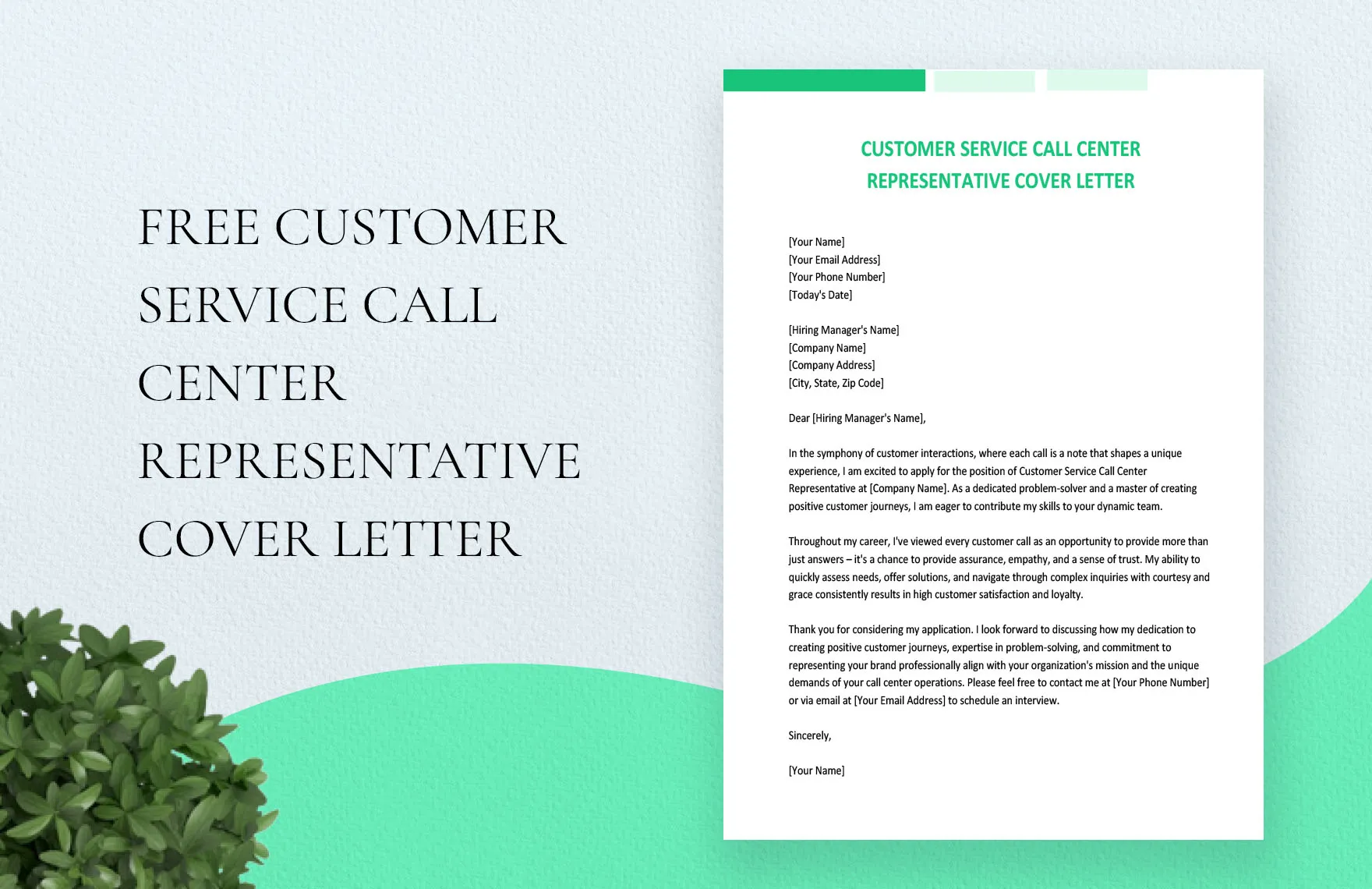
The opening paragraph of your cover letter is your chance to grab the reader’s attention and make a strong first impression. Avoid generic opening lines. Instead, start with a brief statement that captures your enthusiasm for the position and highlights your understanding of the company’s needs. Immediately state the position you are applying for. Mention where you saw the job posting. Briefly summarize your most relevant skills or experiences that align with the job description. Keep the opening concise and focused, and avoid using clichés or overly formal language. Your goal is to pique the hiring manager’s interest and encourage them to continue reading your cover letter. Make sure the opening sets the tone for the rest of your letter and reflects your personality and passion for the role.
Grabbing the Reader’s Attention
To grab the reader’s attention, consider starting your cover letter with a compelling statement or a brief anecdote that showcases your skills or experience. Make it personal and relate it to the job. Use a statement that immediately highlights your qualifications or experiences, such as ‘With over three years of experience exceeding customer satisfaction goals in a fast-paced call center environment…’. Start with something that is unique and interesting. Briefly mention a specific accomplishment or achievement that demonstrates your ability to excel in the role. For instance, ‘I’m excited to apply for the Call Center Representative position at [Company Name]. In my previous role, I consistently exceeded customer satisfaction targets by 15%, demonstrating my ability to provide exceptional service.’ Your opening paragraph is your opportunity to make a lasting impression and show why you’re the best candidate for the job.
Body Paragraphs
The body paragraphs are the heart of your cover letter. Here, you’ll showcase your skills, experience, and accomplishments in detail. Develop your points logically, ensuring that each paragraph focuses on a specific aspect of your qualifications. Provide concrete examples to support your claims. Use the STAR method (Situation, Task, Action, Result) to illustrate your abilities. Quantify your accomplishments whenever possible to demonstrate your impact. For instance, instead of saying “I improved customer satisfaction,” say “I improved customer satisfaction scores by 20% by implementing a new training program.” Use action verbs to describe your experiences and highlight your achievements. Tailor each paragraph to the specific requirements of the job and the needs of the company. Your goal is to paint a vivid picture of your qualifications and demonstrate how you can contribute to the organization’s success.
Showcasing Achievements and Experience
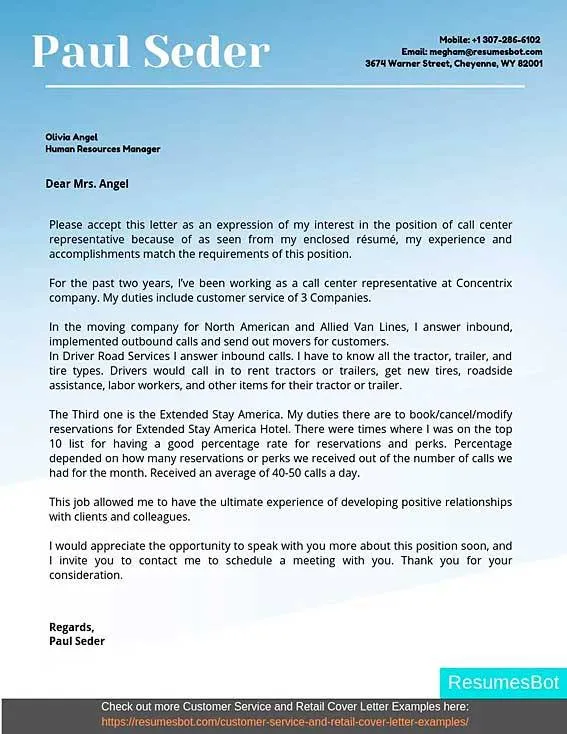
When showcasing your achievements and experience, focus on providing specific examples of your successes. Rather than simply listing your responsibilities, describe the outcomes you achieved in previous roles. Use action verbs to describe your accomplishments. For example, instead of saying “I handled customer inquiries,” say “I resolved over 50 customer inquiries per day, resulting in a 95% customer satisfaction rate.” Quantify your achievements whenever possible to demonstrate your impact. Mention any awards, recognition, or positive feedback you’ve received. Highlight your skills and experiences that are most relevant to the job description, and provide clear evidence of your ability to excel in the call center representative role. Tailor your examples to the specific requirements of the position you’re applying for.
Quantifying Your Accomplishments
Quantifying your accomplishments is a powerful way to demonstrate your value to a potential employer. Whenever possible, use numbers, percentages, and metrics to illustrate your impact. Instead of saying “I improved customer service,” say “I improved customer service scores by 15%.” Quantifying your accomplishments makes your claims more credible and helps the hiring manager understand the tangible results you can deliver. Provide specific data points to showcase your achievements, such as the number of calls you handled per day, the percentage of issues resolved on the first call, or the amount of money you saved the company. Use data to support your claims and prove your ability to make a positive impact in the role. This will set you apart from other candidates and increase your chances of getting an interview.
Highlighting Relevant Experience
When highlighting your relevant experience, focus on the skills and experiences that are most applicable to the call center representative role. Review the job description carefully and identify the key requirements and qualifications. Then, select the experiences that align with those requirements and showcase your ability to meet the expectations of the position. Use action verbs to describe your accomplishments and provide specific examples to demonstrate how you’ve used your skills in the past. If you have previous experience in customer service or call center roles, highlight those experiences. If you lack direct experience, focus on transferable skills such as communication, problem-solving, and empathy. Tailor your examples to the specific requirements of the job description and provide clear evidence of your ability to excel in the role.
Creating a Strong Closing
The closing paragraph of your cover letter is your last chance to make a positive impression and leave a lasting impact on the hiring manager. Reiterate your interest in the position and express your enthusiasm for the opportunity. Summarize your key qualifications and skills. Include a clear call to action, such as requesting an interview or indicating your availability for a phone call. Express your gratitude for the hiring manager’s time and consideration. Keep the closing concise and professional, and avoid using clichés or overly formal language. Your goal is to leave the hiring manager with a positive impression of your candidacy and encourage them to take the next step in the hiring process.
Call to Action
A call to action is a crucial element of your closing paragraph. It tells the hiring manager what you want them to do next. Clearly state your desire for an interview or a phone call to discuss your qualifications further. Make it easy for the hiring manager to take action by providing your contact information and expressing your availability. For example, you could say, “I am eager to discuss my qualifications in more detail and would welcome the opportunity for an interview. I am available for a call at your earliest convenience.” Keep your call to action clear, concise, and action-oriented. By including a strong call to action, you increase your chances of getting an interview and moving forward in the hiring process.
Expressing Enthusiasm
Expressing enthusiasm in your closing paragraph is crucial to convey your interest in the position and the company. Show your excitement for the opportunity. Mention something specific that excites you about the role or the company. It shows the hiring manager you’ve researched the company. Convey your eagerness to contribute to the team and the company’s success. Demonstrate your understanding of the company’s mission and values, and explain how you can make a positive impact. Show that you are looking forward to the opportunity of working with them. Genuine enthusiasm can make a significant impact and leave a positive impression on the hiring manager.
Proofreading and Editing
Proofreading and editing your cover letter is essential to ensure it is free of errors and presents you in a professional light. Before submitting your cover letter, carefully proofread it for any grammatical errors, spelling mistakes, and typos. Check for any inconsistencies in formatting, such as font size or spacing. Read the letter aloud to catch any awkward phrasing or unclear sentences. Consider asking a friend, family member, or career counselor to review your cover letter and provide feedback. A fresh pair of eyes can often catch mistakes that you may have missed. Take the time to ensure your cover letter is polished and error-free. A well-proofread and edited cover letter demonstrates your attention to detail and professionalism, which are valuable qualities for a call center representative.
Common Mistakes to Avoid
Several common mistakes can undermine your cover letter and decrease your chances of getting an interview. Avoid generic cover letters that lack personalization. Do your research on the company. Avoid simply restating your resume. Instead, provide context and expand on your experiences. Do not include information that is irrelevant to the job. Focus on the skills and experiences that are most relevant to the position. Avoid using jargon or overly complex language that the hiring manager may not understand. Instead, use clear, concise, and professional language. Make sure your cover letter is free of grammatical errors, spelling mistakes, and typos. Proofread your letter carefully before submitting it. By avoiding these common mistakes, you can create a cover letter that effectively showcases your qualifications and increases your chances of getting an interview.
Grammar and Spelling Errors
Grammar and spelling errors can significantly damage your credibility and reduce your chances of getting an interview. Proofread your cover letter carefully to ensure it is free of mistakes. Check for any grammatical errors, such as subject-verb agreement, tense consistency, and punctuation errors. Use a spell checker to identify and correct any spelling mistakes. Consider using a grammar checker to help you catch any errors in your writing. Read your cover letter aloud to catch any awkward phrasing or unclear sentences. Ask a friend, family member, or career counselor to review your letter and provide feedback. A well-written and error-free cover letter demonstrates your attention to detail and professionalism, which are essential qualities for a call center representative.
Length and Tone
Your cover letter should be concise and focused, ideally no longer than one page. Keep your paragraphs short and to the point, and avoid using overly complex sentence structures. Maintain a professional and enthusiastic tone throughout your letter. Use a positive and confident voice, and avoid using negative language or making excuses. Tailor your tone to the specific job and company. Research the company culture and adjust your tone accordingly. Ensure that your tone reflects your personality and passion for the role while maintaining a professional demeanor. The tone should be engaging and make the reader want to learn more about you.
Tailoring Your Letter
Tailoring your cover letter to each job application is essential to demonstrate your genuine interest and suitability for the position. Generic cover letters are easy to spot and often fail to make a positive impression. Instead, customize your letter to the specific requirements of the job description and the needs of the company. Highlight the skills and experiences that are most relevant to the position, and provide specific examples to demonstrate how you’ve used them in the past. Show your understanding of the company’s mission, values, and goals, and explain how you can contribute to their success. Research the company and the specific role. Make sure the tone and language of your cover letter align with the company’s culture. By tailoring your cover letter, you can increase your chances of getting an interview and landing your dream call center representative position.
Researching the Company
Thoroughly researching the company before writing your cover letter is a crucial step in tailoring your application and increasing your chances of success. Visit the company’s website, read their “About Us” page, and explore their social media profiles. Learn about their mission, values, and culture. Identify the products or services they offer, and understand their target audience. By researching the company, you can demonstrate your genuine interest in the position. Customize your cover letter to address their specific needs and requirements. Show your understanding of their goals and how you can contribute to their success. Researching the company also helps you tailor your language and tone to align with the company’s culture.
Customizing for Each Application
Customizing your cover letter for each application is essential to demonstrate your interest and suitability for the position. Avoid using a generic cover letter and instead tailor it to the specific requirements of the job description and the needs of the company. Highlight the skills and experiences that are most relevant to the position. Provide specific examples to demonstrate how you’ve used your skills in the past. Show your understanding of the company’s mission, values, and goals. Research the company and the specific role, and customize your language and tone accordingly. Make sure that each cover letter is unique and reflects your genuine interest in the position and the company. By taking the time to customize your cover letter, you can significantly increase your chances of getting an interview and landing your dream call center representative position.
